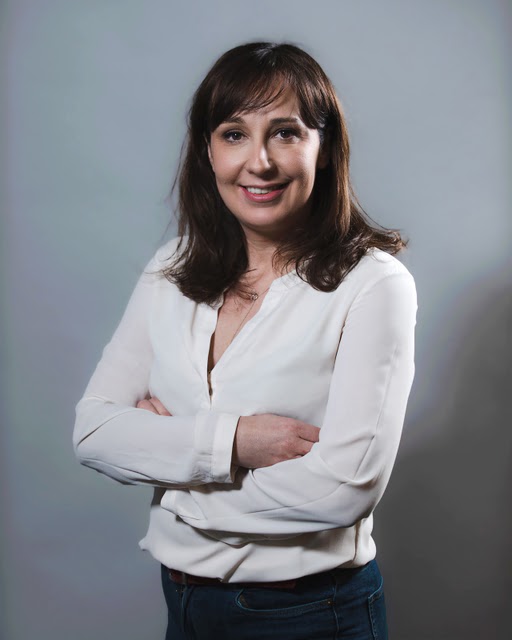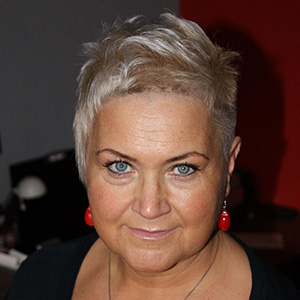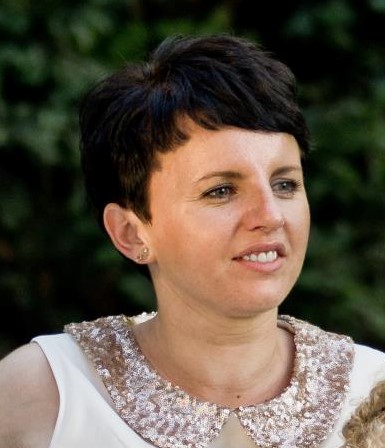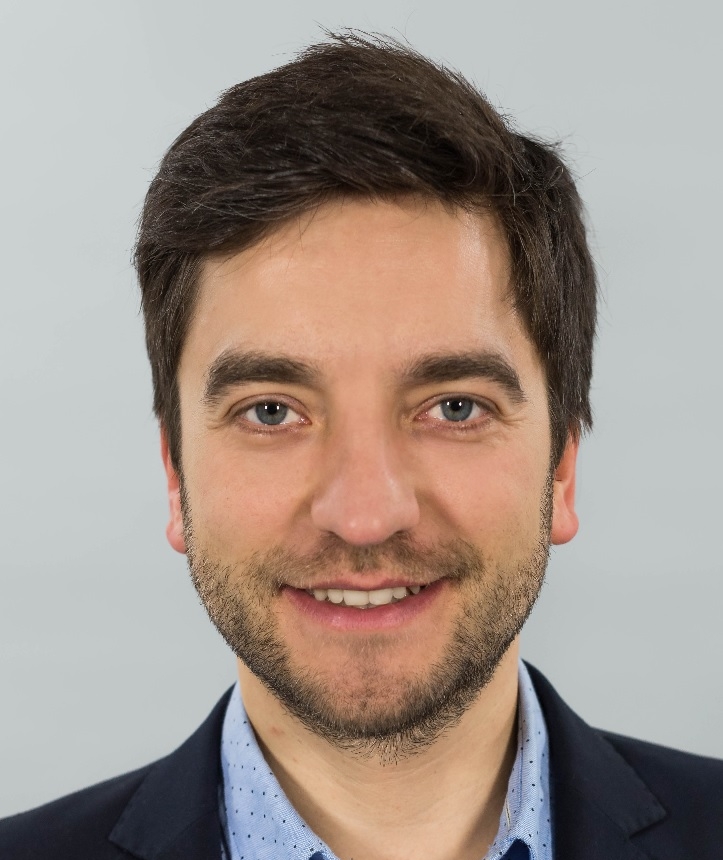WHO WE ARE?
HumanDoc Foundation was brought to life in order to educate and act to solve global problems.
Within a decade, we have successfully implemented numerous interdisciplinary projects, all of which focus on actions for the societies and equalizing opportunities. We specialize in comprehensive management of complex, multi-stage projects, which is the result of good planning, analyzing information and selecting the right and experienced experts, who share our values.
Chain reaction
Those, who have never encountered HumanDoc before, find it hard to understand the wide range of our activities, both in terms of ideas and geography. It’s hard to find common ground for feeding children in Uganda, making reportages about climate change in Maldives, strengthening education in Poland by creating new courses at universities or organizing one of the biggest documentary film festivals.
You think, we can’t make up our minds?
On the contrary. We know exactly, what we want and for over a decade we have been persistently pursuing our ideas. This is why, HumanDoc is like a chain reaction:
It starts with a team of involved people with great ideas. We exchange our experiences, specify our values and put them into real actions. Each of them, each new project, brings new experience and new conclusions. Each action we take means also building relations with new partners, but also strengthening the existing ones. The sum of new experiences translates into new ideas, which in turn translate into new implementations. They reach deeper and further. Under the surface of the primary problem.
Our projects were not created overnight. They are interconnected. They are the consequence of our previous actions, knowledge of the problem, building the trust of our partners and, most importantly, of our beneficiaries, who, by accepting our help, reveal their stories and personal experiences to us and this way indicate gaps in the system.
What’s important – we don’t stand alone in our actions. We wouldn’t have managed without the support and engagement of our partners. Our first activities in Georgia were possible thanks to the Merkuri Association, while currently we are supported by the Georgian government, Ombudsman Office and National Probation Agency.
On the other hand, our projects, even the best ones, couldn’t have succeeded without the support of Polish experts, especially experts from the Specialized Support Centre for Domestic Violence Victims in Opole, who for years now have been eagerly supporting our actions and values.
In our educational projects, we’ve been using the support of our substantive partners, such as University of Warsaw, University of Opole, scientists who tame with us all notions regarding global education.
All our activities are possible thanks to our long term partnership with the Polish Ministry of Foreign Affairs – thanks to it, we can successfully implement our development projects that touch upon social problems as well as economic and political transformation.
The Foundation cooperates on regular basis with Polish organs of public administration, that is the Ministry of Culture and National Heritage, Ministry of Interior of Administration, Senate of the Republic of Poland, Polish Film Institute, Representation of European Commission in Poland, or Polish Embassy.
Our projects introduce systemic solutions and are appreciated by both Polish and foreign entities
Actions aimed at strengthening the protection system of domestic violence victims in Georgia were described as good practice in OECD report from 2018
The project “Introduction to the global education of the journalism and politology educational systems” was the official winner of the GENE Global Education Award 2020/2021 which means it was selected as one of the seven best projects in global education among the whole of Europe
Project addressed to the blind persons in post-soviet countries was named the Project of the Year 2018 by the Visegrad Fund
Building new educational modules at the University of Opole was recognised by the university authorities as introducing model solutions in terms of the curricula development
Global Studies specialization in the field of Political Science at the University of Opole – the result of the project “Introducing Global Education to the Education System for Journalism and Political Science Students” received the Certificate and Quality Mark for “Studies with the Future” in the 6th edition of the national Competition and Accreditation Program “Studies with the Future” organized by the Foundation Development of Education and Higher Education and the PRC Agency
The project “HumanDOC International Documentary Film Festival” was nominated by the Ministry of Foreign Affairs for the pan-European GENE Global Education Award 2020/2021 program, as an example of good and inspiring practices in global education in Poland
trained psychologists, doctors, policemen, teachers and students in the area of domestic violence in Georgia
viewers of the online screenings of International Documentary Film Festival HumanDOC
we are supporting 4 centers for the deaf-blind persons in Georgia. Our educational and aid activities in this area have reached over one million persons so far.
Our team
The HumanDoc team currently consists of almost fifty permanent staff, volunteers, and experts. They are individuals coming from several countries. A significant part of our team is refugees. We speak Polish, English, Ukrainian, and Russian. We have two offices: in Warsaw and Opole.
We work according to international humanitarian aid standards. We have implemented procedures such as Safeguarding, Child Protection, and a Code of Conduct.

Urszula MARTYNISZYN
Chairman of the Board
Graduate of Media Studies at the Jagiellonian University in Cracow. Film director, producer, editor. Graduate of Andrzej Wajda’s Master School of Film Directing. Cooperated with TVN, TVN Discovery, TVP Culture, TVP INFO in respect of film production. Co-producer of films for TVP concerning project co-founded within the scope of Polish Aid programme.

STANISŁAW JAN BRUDNOCH
Executive Director

MEGI BIBILURI
Head of refugee support care and Caucasus programs unit
The founder of Georgian Association Bridge of Friendship “Kartlosi”. For 12 years now, she has been active in the non-governmental sector, she is an author of dozens of projects. She founded Georgian Mediation Centre, where she is also a mediator. She is the author of the book “The Other Picture of War”, which portrays the war between Georgia and Russia in 2008. In 2014 she received “Young Women Peace Award in Caucasus”.

Dominika Springer
Board Member of HumanDoc Foudation
A non-governmental and humanitarian expert, co-founder, and board member of the HumanDoc Foundation. She has worked on missions in Ukraine, Georgia, and Afghanistan. Her professional experience includes working with Polish and international organizations such as the Polish Humanitarian Action (PAH) and the Organization for Security and Co-operation in Europe (OSCE). She has also worked as a journalist, producer, and war correspondent for Polsat Television news programs.
She holds an educational background in social and international sciences. With extensive experience working in high-risk regions and crisis-affected communities, she also serves as a lecturer, consultant, and mentor, as well as an expert in evaluating humanitarian and development projects.

IZABELA ŻBIKOWSKA
Head of the education and social innovation program
Graduate of Social Psychology and postgraduate studies in Investigative Psychology. She finished mediation and family mediation courses. She worked as a journalist and editor in Gazeta Wyborcza over ten years, specialized in legal cases and reportages. She cooperated among others with “Duży Format”, “Wysokie Obcasy”, and department of daily reportages “Welcome in Poland”. Currently cooperating with a university.

KAROLINA ZAGÓRSKA
Coordinator of the financial support program for refugees
She has 10 years of experience in leading social action and coordinating projects in the humanitarian, business, and educational fields. She participated in a development project on the professionalization of agricultural cooperatives in Palestine. In Georgia, in turn, she supported an initiative to assess preschool infrastructure in terms of its preparedness for natural disasters and fires.
experTs

Barbara Leszczyńska
Head of the Specialist Support Center for Victims of Domestic Violence
Head of the Specialist Support Center for Victims of Domestic Violence in Opole, for over 5 years she has been cooperating with HumanDoc, conducting training on the international arena in the field of mechanisms of domestic violence and its prevention. She trained, among others policemen, teachers, 112 line operators as well as psychologists and social workers from other countries (including Poland, Georgia or now Uzbekistan). She participates in the work on developing substantive materials on the mechanisms of domestic violence. For 10 years she led the Interdisciplinary Team in the Opole City Council in the field of counteracting domestic violence.

Edyta Rybak
Psychologist
Psychologist at the Specialist Support Center for Victims of Domestic Violence in Opole. She conducts therapy for adults, adolescents, and children experiencing violence, witnesses of violence, and educational consultations for parents. It implements correctional and educational programs for people using violence and psychological and therapeutic programs for people who cannot cope with aggression. She has been cooperating with HumanDoc for 3 years. During the lockdown in 2020, together with HumanDoc, she conducted pro bono training for several psychologists in the country in responding to domestic violence during isolation.

Dorota Heidrich
Post-doctoral degree
Post-doctoral degree in the humanities in the field of political science. From October 1, 2016 – Deputy Director of the Institute of International Relations, the University of Warsaw for Didactics. Scientifically she deals with forced migrations (refugees and IDPs), broadly understood issues of development cooperation, Transitional Justice and Dealing with the Past, international intergovernmental and non-governmental organizations. For years, she has been substantively supporting the HumanDOC International Documentary Film Festival by preparing and moderating expert discussion panels.

Kamil Minkner
Professor
Professor at the University of Opole in the field of political science; head of the Laboratory of Analyzes and Expertise of the Institute of Political Science, UO. He deals with the theory of politics (especially the issue of politics), relations between politics and culture (especially art, popular culture and cyberculture, global education) and the problems of democracy in the countries of the global South. He supports HumanDoc in the implementation of global education projects.

Sabina Baraniewicz-Kotasińska
Master of Science
Assistant at the Institute of Political Science at the University of Opole and a PhD student in the field of political science. She is interested in the interactions arising within the network of connections between technology, politics and society. A scholarship holder of the Polish-U.S. Fulbright Commission. She conducts research related to city management and governance in an era of increasing urban population and declining resources at the University of California, Berkeley. Supports HumanDoc in the implementation of global education projects.

Kamila Skalska
Psychologist
Involved in work with the deaf and blind community as a psychologist, specialist in rehabilitation equipment since 2009. As a job trainer for deaf-blind people in the supported employment model, she looked for a job with deaf-blind people and adapted workplaces at employers to the visual and auditory needs of OGN. Guide translator for deaf-blind people, trainer instructor for translator guides. She conducted training for volunteers, students, university staff, local government officials, students, and preschoolers in the field of sensitivity and savior vivre in contact with a deaf-blind person and the basics of supporting OGN. Visual and tactile sign language interpreter for deaf and blind people. She participated in the creation of the Georgian version of the Lorma alphabet.

Anna Wołoszczuk
Psychologist

Natalia Czarnecka
Therapist
Therapist (psychotherapist during the certification of Systemic Therapy) of the Support Center for Victims of Domestic Violence in Opole. She conducts therapies for adults experiencing violence, therapies for couples in conflict and implements correctional and educational programs for people using violence and psychological and therapeutic programs for people who cannot cope with aggression. She has been cooperating with HumanDoc for 3 years. During the lockdown in 2020, together with HumanDoc, she conducted pro bono training for several dozen psychologists from the country in the field of responding to domestic violence during isolation.

Adam Drosik
Professor
From October 1, 2019, the Dean of the Faculty of Political Sciences and Social Communication. Author of several scientific publications and several dozen reports and research studies, including the monograph Management of issues and articles in reputable scientific journals Conservation Biology and Sustainability, being the result of interdisciplinary research conducted within the Polish-Brazilian research consortium. He supports HumanDoc in the implementation of global education projects.

Bartosz Maziarz
PhD
PhD of social sciences in the field of political science, security specialist. Assistant professor at the Institute of Political Science at the University of Opole. In 2017 – Expert of the Committee of the Regions of the European Union on EU external resilience. He focuses his research interests on the phenomenon of security politicization, anti-terrorist prevention and the role and place of special forces in the state and international security system. He supports HumanDoc in the implementation of global education projects.

Grzegorz Haber
PhD
Research and didactic worker at the University of Opole. Author of scientific publications in which he presents the results of research on the socio-economic problems of the modern world. Active collaborator of non-governmental organizations; consultant of strategies and models for managing employee development, as well as trainer and career advisor working, among others with people with disabilities. He supports HumanDoc in the implementation of global education projects.

Michał Drzewek
Art therapist
A student in the unique MA studies in Polish Sign Language Philology, a graduate of pedagogy at the Academy of Special Education and sociology at Collegium Civitas, as well as a coach, trainer and art therapist. He started gaining experience in working with people with disabilities and in NGOs in 2001, starting from being a volunteer, then a translator-guide for deaf-blind people, an animator of various cultural activities, an organizer and manager of various types of workshops. He is a co-creator of the Standards of Training and Examinations for translators-guides and an instructor / trainer of trainings and examinations for translators-guides and training instructors for translators-guides in Poland and Georgia. On a daily basis, he works as a teacher of IT, personal and social competences and occupational therapy, as well as a translator and teacher.